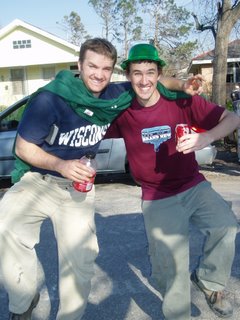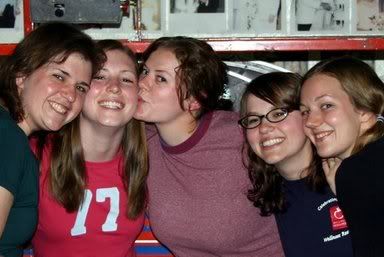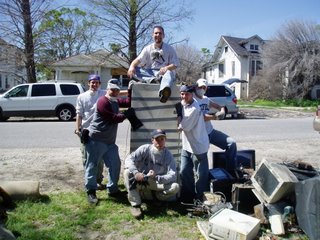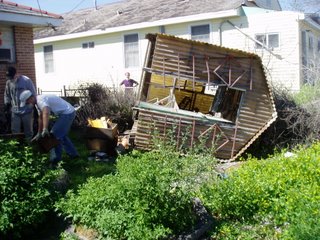Wrestling, The Journey of Desire, and Jeremiah
Today during lunch I read the last two chapters of The Journey of Desire by John Eldredge. He wrote about some stuff that God has been really laying on my heart the last few months. I've been running back and forth between trying to always be content, as Paul says he is in Phillippians, and also continually not settling for anything of this world - putting my hope in what Christ has offered me in Heaven through salvation.
How do I welcome the grief that points my desires to heaven while being content in all circumstances? That's the question I've been wrestling with a little bit, and I thought Eldredge put it really well:
As one camp song has it, "I'm inright, outright, upright, downright happy all day long." What complete nonsense! Augustine emphasized, "The whole life of the good Christian is a holy longing. What you desire ardently, as yet you do not see."...Longing leads to fullness somewhere down the road. Meanwhile, being content is not the same thing as being full.
Paul said he had "learned the secret of being content" (Phil. 4:12) and many Christians assume he no longer experienced the thirst of his soul. But earlier in the same epistle, the old saint said that he had not obtained his soul's desire, or "already been made perfect." Quite the contrary. He described himself as pressing on, "straining toward what is ahead" (Phil. 3:12-14). These are not the words of a man who no longer experienced longing because he had arrived. They are the account of a man propelled on his life quest by his desire.
...
The fact is, at this point in our journey, we have only three options: (1) to be alive and thirsty, (2) to be dead, or (3) to be addicted. There are no other choices. Most of the world lives in addiction; most of the church has chosen deadness. The Christian is called to the life of holy longing. But we don't like to stay there.
...
The Israelites tried to hoard the manna - and it crawled with maggots. Our soul's insatiable desire becomes the venom Pascal warns of when it demands its fill here and now, through the otherwise beautiful and good gifts of our lives. God grants us so much of our heart's desire as we delight in him: "You open your hand and satisfy the desires of every living thing" (Ps. 145:16)
...
Now making time to grieve might seem strange to you. "But I don't feel grief or sorrow at all." Just because we do not feel it doesn't mean it is not there. Our pleasant experience may be the result of the thousand distractions that fill our waking moments. Kierkegaard said that despair has become so rare not because the human race is doing suddenly better, but because we so effectively push it away. This is the "sickness unto death," to despair without ever despairing, to mourn without ever mourning.
I've found, therefore, that quite often grief has to sneak up on us, surprise us during our day. It may come through a song you hear or a movie you see. It may come as you choose to allow your soul twenty minutes of quiet during your lunch hour. Sometimes a small dissapointment can be the door into a room of grief you never knew was there. However unexpectedly grief shows up, let us accept it as a welcome visitor.
In the last chapter, Eldredge says that when he journals he always leaves a space in the back of his journal to remind himself of the truths that God teaches him to keep him going, this one I really liked:
The meadowlark. The meadowlark has long been my favorite songbird. I suppose to many people it's a simple bird, not really all that colorful, none too spectacular in flight. But I love its song because it evokes so many summer days out in the fields and streams of the West. Because of my story, there is much romance for me in the meadowlark. Its song means summer, hay meadows, long lazy days, fly-fishing. More than anything else, it has become for me a symbol of hope. The meadowlark returns to Colorado in the early spring, and as I've mentioned, that typically means it arrives about the same time our major snowstorms hit. What courage; I'm sure if it were me, I'd wait until June when the weather warms up. But they come in spite of the snow, and take their place on fence posts and the tops of small trees, and begin singing. Hearing a midsummer song almost seems out of place when the flurries are whipping about your face. But that is exactly when we need it.
Seemingly unrelated, after I got back to my desk I read this verse:
Thus says the Lord, "What injustice did your fathers find in Me,
That they went far from Me and walked after emptiness and became empty?"
- Jeremiah 2:5
That makes sense, we chase emptiness, we come up empty! Paul said to the Phillippians:
Finally, brothers, whatever is true, whatever is noble, whatever is right, whatever is pure, whatever is lovely, whatever is admirable - if anything is excellent or praiseworthy - think about such things



















































